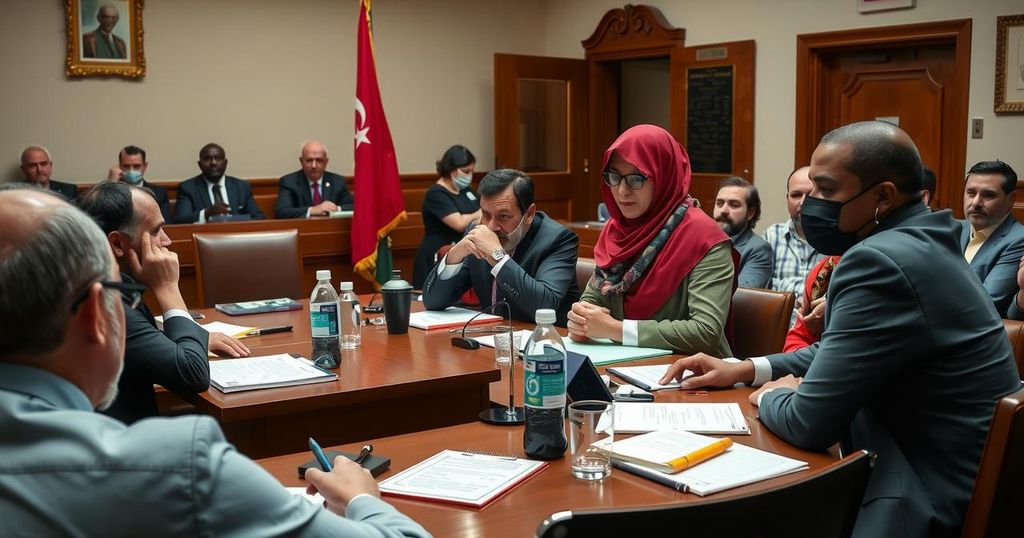Morocco: Activists Charged Over Criticism of Earthquake Response
Four activists appeared in court due to defamation charges linked to their criticism of the Moroccan government’s response to the 2023 earthquake. The leading activist, Said Ait Mahdi, remains in custody, while the others are free pending trial. The earthquake resulted in significant loss of life and property, prompting calls for improved reconstruction efforts from both the government and advocates.
On Monday, four activists focused on aiding victims of the September 2023 earthquake in Morocco appeared in court, confronting multiple charges, including defamation. Said Ait Mahdi, the leader of the Al Haouz Earthquake Victims Coordination, remains in custody, accused of spreading false claims and insulting public officials. The charges originated from social media posts that criticized the government’s response to the disaster. The other three activists, granted conditional release, also face accusations of offending public officials.
The earthquake, which caused significant devastation in the High Atlas mountains, resulted in the tragic loss of nearly 3,000 lives and the destruction of numerous homes. In the aftermath, Ait Mahdi’s organization has been persistently advocating for expedited reconstruction efforts to assist the affected families. The Moroccan government has reportedly issued more than 57,000 reconstruction permits and committed approximately $740 million towards rebuilding initiatives.
The September 2023 earthquake in Morocco was a catastrophic event that devastated the High Atlas region, resulting in expansive loss of life and property. The government has since attempted to address the aftermath through financial commitments and issuing reconstruction permits. However, local activists perceive the government’s efforts as insufficient, leading to public outcry and critical assessments of the official response. The legal actions taken against the activists underscore ongoing tensions between civil society and governmental authorities in Morocco.
In conclusion, the case against four activists advocating for earthquake victims highlights serious concerns regarding the government’s accountability and responsiveness in disaster recovery efforts. As reconstruction progresses, the relationship between local advocates and authorities will be crucial in ensuring that victims receive the needed support and assistance. The scrutiny placed on the government’s actions following the earthquake will likely shape public discourse and future advocacy initiatives.
Original Source: newscentral.africa




Post Comment